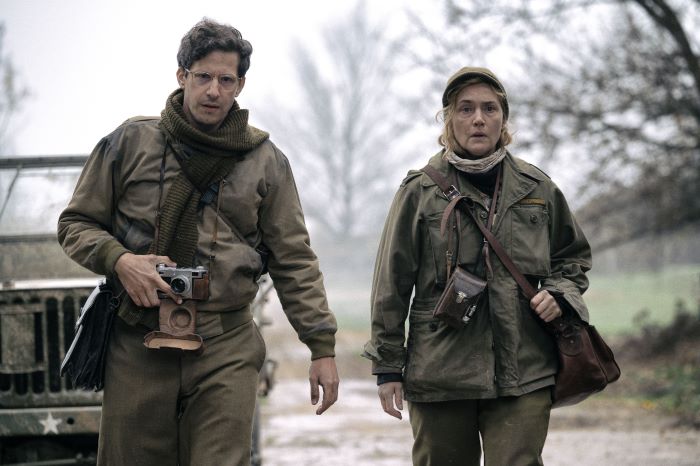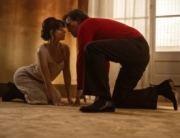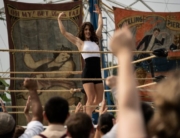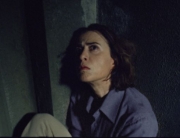“People’s eyes are full of life, until they aren’t.” Is this a poetic statement or a simple reflection on crossing the line between life and death? The ambiguity makes sense in Ellen Kuras’s film Lee, featuring an exceptional performance by Kate Winslet. Winslet mixes idealism, will, and crankiness in a high-level star turn that helps the biopic navigate some uneven ground.
Lee tells the life story of Lee Miller, a café society regular and artist’s muse who became a World War II photographer of great bravery and talent. Perhaps Kuras didn’t have quite enough money in the budget, as the movie suffers a bit from a familiar four-people-liberating-Paris underpopulation and a blown-out digital sheen. It could use a little more heft and epic sweep. However, Winslet brings some of that brio with her performance.
The biopic starts with its protagonist circulating in bohemian settings, where Winslet plays a sexy, semi-nude flirt when she meets a sensitive new man in her life, British artist and writer Roland Penrose (Alexander Skarsgård). As the war ratchets up and she heads into battle with her camera, she becomes a devoted comrade in arms to a drier, tougher fellow, David Scherman (Andy Samberg, playing a military officer straight and convincingly)—neither man remains long in the narrative. Lee fights like a tigress to get to the French wartime front, insists on the integrity of her photos, and stands up to a bitchy Cecil Beaton at Vogue. In scenes of her as an old woman, she beguiles and draws out the young man (Josh O’Connor) interviewing her over drinks. She’s a woman of many faces, all lived-in and compelling.
The movie stands out from other war pictures in its focus on combat as an experience as perilous for women as for men. Lee makes clear the threat of sexual assault and the dangers of being labeled a collaborator: A scene where a mob cuts an accused French horizontale’s hair is a harrowing reminder of punishment meted out far more harshly to women than to the many men who betrayed their country. The film also deals empathetically with the aftermath of war, with its displacement, loss, and grievous impact on women and children.
A line from the movie crystallizes the earlier, pleasure-loving phase of Lee Miller’s life with the skirmish-hardened, adventurous second phase. Heading into postwar ruins, Miller asks herself: “Why didn’t I just go home? I suppose I could’ve, but I’ve always been the last to leave a party.” A perfect sum-up of a heroine who knows herself well, played by a performer who knows how to live out the character’s contradictions.

















Leave A Comment